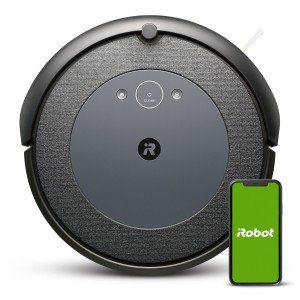The Rise of Robot Sweepers: Revolutionizing Household Cleaning
In the hectic world of technology, robotic devices have actually become important companions in the mission for a cleaner home. Amongst these technological marvels, robot sweepers have actually acquired substantial appeal due to their capability to carry out cleaning tasks successfully while minimizing human effort. This post explores the complexities of robot sweepers, their benefits, operating mechanisms, and their future in family cleaning.
What Are Robot Sweepers?
Robot sweepers, often described as robotic vacuum, are autonomous devices created to tidy floors with very little human intervention. Geared up with various sensors, brushes, and suction abilities, these smart gadgets browse through living spaces, getting dust, dirt, and particles effectively. They come in numerous shapes and sizes, accommodating various cleaning requirements and floor types.
Secret Features of Robot Sweepers
Smart Navigation Systems:
- Many robot sweepers utilize sophisticated navigation systems such as LIDAR or camera-based mapping to produce a detailed map of the location they clean. These systems help them browse effectively and prevent obstacles.
Scheduled Cleaning:
- Users can often set robot sweepers to operate at specific times, making it easy to maintain a clean home without manual intervention.
Sensing units and Detectors:
- Robot sweepers are equipped with sensors that permit them to spot dirtier locations and adjust their cleaning strength appropriately. Some designs can even determine stairs and ledges to avoid falling.
Compatibility with Smart Home Systems:
- Many robot sweepers can effortlessly integrate with smart home environments, allowing voice command functionalities and push-button control via mobile phone apps.
Advantages of Using Robot Sweepers
Robot sweepers provide many benefits that make them attracting a broad range of users:
Time-Saving:
- One of the most considerable benefits of robot sweepers is their capability to conserve time. Users can set their devices to clean while they participate in other activities, such as working or hanging around with household.
Efficient Cleaning:
- With the ability to tidy under furniture and in tight spaces, robot sweepers often reach locations that traditional vacuum cleaners can not, making sure a comprehensive cleaning experience.
Reduced Physical Labor:
- Robot sweepers reduce the physical demands of cleaning, making them ideal for elderly people or those with movement problems.
Consistent Maintenance:
- Regularly arranged cleansings can promote better total hygiene and health, particularly for people with allergies to dust or pet dander.
User-Friendly:
- Generally created for ease of usage, robot sweepers need minimal setup and can typically be operated with simply a couple of taps on a smartphone app.
Table: Comparison of Popular Robot Sweepers
| Design | Smart Navigation | Suction Power | Battery Life | Price (Approx.) | Unique Features |
|---|---|---|---|---|---|
| iRobot Roomba 980 | Yes | High | 120 minutes | ₤ 799 | CarpetBoost technology |
| Neato Botvac D7 | Yes | Medium | 120 minutes | ₤ 599 | D-shape design for corners |
| Eufy RoboVac 30C | Basic | Medium | 100 minutes | ₤ 249 | Quiet operation |
| Roborock S6 | Yes | High | 180 minutes | ₤ 649 | Mopping ability |
| Ecovacs Deebot OZMO | Yes | Medium | 110 minutes | ₤ 399 | Smart mopping functions |
How Robot Sweepers Work
Understanding the inner workings of robot sweepers can clarify why they are so efficient. Here's a simplified summary of the process:
- Mapping: The robot sweeper starts by scanning the environment to draw up the space using laser sensing units or video cameras.
- Navigation: Once the area is mapped, the robot uses the data to navigate efficiently, cleaning partial sections before proceeding to others.
- Cleaning: Equipped with brushes and suction systems, the robot sweeper gathers debris and dirt from floors.
- Returning Home: Upon completing its task or when the battery is low, the robotic vacuum automatically goes back to its charging dock.
Frequently Asked Questions About Robot Sweepers
1. Can robot sweepers change traditional vacuum cleaners?
- While robot sweepers are excellent for maintaining tidiness and managing light dirt, they may not entirely change conventional vacuums for deep cleaning tasks.
2. How often should I run my robot sweeper?
- It is suggested to run robot sweepers at least twice a week, depending upon foot traffic in your home.
3. Are robot sweepers ideal for pet owners?
- Yes, many models are particularly developed for pet hair elimination and feature specialized brushes and effective suction choices.
4. Do robot sweepers work on carpets?
- Most robot sweepers can clean carpets effectively, however suction power and brush style might vary. High-end models frequently have settings to adjust to carpeted surface areas.
5. How much do robot sweepers cost?
- Rates vary based upon functions and brands, ranging from about ₤ 200 for budget alternatives to over ₤ 900 for high-end models with innovative abilities.
The expansion of robot sweepers marks a considerable improvement in home cleaning innovation. While they may not completely replace traditional cleaning approaches, robot sweepers offer unequaled benefit, effectiveness, and the ability to minimize physical stress on users. As best affordable robot vacuum , these devices are most likely to become even smarter, more efficient, and more integrated with other smart home systems, making them a staple in modern-day homes. Ultimately, the adoption of robot sweepers is a testimony to the evolving landscape of home cleaning options-- one that boosts daily life and promotes a cleaner living environment.

